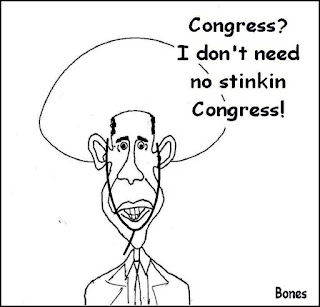In March of this year the federal Energy Information Administration
(EIA) released data showing that in 2011 coal was responsible for 42 percent of
U.S. power production, a little lower than years past, but coal still is the most
commonly used fuel in producing domestic electricity.
Burning coal is dirty, but it is cleaner today than any time
in the last 60 years. And mining coal is
risky for workers, but so is commercial fishing, logging, flying airplanes, and
farming/ranching, the four most dangerous occupations in the country. Yes, coal
has its negatives, but so does every one of the energy sources suggested to
replace it.
On the plus side, coal not only produces energy, it produces
direct and indirect employment for hundreds of thousands of Americans, and
billions in tax revenue from its production and sale, and from the income of
industry businesses and workers.
Coal generates electricity in 48 states and is mined in 25 states.
According to the National Mining Association (NMA) U.S. coal mining directly
employs nearly 136,000 people, and the average coal miner earns $73,000 per
year. For each coal mining job, an additional 3.5 jobs are created elsewhere in
the economy. For example, 60,000 people work in coal-fired power plants, and thousands
more work in the transportation industry delivering coal to customers. The NMA
estimates that 50,000 new employees will be needed in coal mining over the next
10 years to meet demand and to replace retiring workers. And, coal is projected
to be the dominant fuel for electricity generation in the U.S. through 2035, according
to the EIA.
This information ought to be seriously considered when the vast
army of government regulators is hard at work making life more expensive, but
not necessarily better. It was clearly ignored when the Environmental
Protection Agency developed the Utility MACT Rule, which establishes the maximum
achievable control technology (MACT) standards for emissions of hazardous air
pollutants from coal- and oil-fired power plants. Primarily, Utility MACT
targets mercury emissions.
You remember mercury. It’s the poison contained in every one
of the new miracle light bulbs, called CFLs, which Congress mandated to replace
the popular, inexpensive and safe incandescent bulbs we have used for decades. It
is also released by coal combustion and the EPA fears it will settle into water
supplies and cause birth defects when consumed by pregnant women.
The National Center for Policy Analysis (NCPA) recently commented
on a study by the Competitive Enterprise Institute that disputes the EPA’s data.
“The EPA's December 2000 determination that triggered the rule assumed that 7
percent of pregnant women in the United States have blood mercury
concentrations exceeding the agency's reference dose. In reality, only 0.4
percent (one in every 250 pregnant women) had blood mercury levels exceeding
the reference dose.”
“Furthermore, the EPA's reference dose is overly cautious:
the EPA's reference dose is 1/15th the lowest exposure level associated with
mild, subclinical effects in epidemiological studies,” the NCPA reports. “Finally,
the EPA produces no evidence of mercury exposure at these levels having any
effect on unborn children.”
The report also says “EPA estimates that each year 240,000
pregnant women in subsistence fishing households eat enough self-caught fish to
endanger their children's cognitive or neurological health, yet the agency has
yet to identify a single woman who fits this description.”
The EPA justifies implementing this rule by claiming that
the public health benefits of limiting coal burning will be greater than the
compliance costs. It claims the Rule will save $80 billion a year, but relies
on achieving levels of particulate matter discharge well beyond levels generally
recognized as safe.
Furthermore, the Federal Energy Regulatory Commission projects
the Rule will result in losing 81,000 megawatts of electricity generation, almost
eight times the EPA’s estimate.
American coal plants are vastly cleaner than those in other
countries, where pollution control is virtually non-existent. China now emits
more mercury than the United States, India, and Europe combined, and mercury pollution
wafts across the Pacific to foul our air and water. The EPA would better serve
Americans if it regulated China’s coal burning.
Americans for Prosperity predicts American families and
businesses will see electricity bills rise by an average of 12 percent
nationwide and by as much as 24 percent in coal country, and this “burdensome
regulation” will destroy over a million American jobs in the coming years.
The U.S. Senate had the opportunity last Wednesday to put a
halt to this anti-coal, anti-common-sense scheme, but failed by a 53-46 vote.
Incomprehensibly, two coal-state senators, West Virginia
Democrat Jay Rockefeller and Tennessee Republican Lamar Alexander, voted
against the measure, along with four other Republicans. Clearly, Senators
Rockefeller and Alexander have failed their constituents and their states.
The EPA grossly overstated the dangers of mercury from burning
fossil fuels and grossly understated the harmful effects of Utility MACT on the
public. These folks will not be satisfied until every detectable particle of
every substance that at some level of concentration might be harmful to
something or someone is eliminated from the Earth, and they are eager to force job
losses and higher consumer costs on us trying to achieve that impossible goal.
Click here to comment
Click here to comment







